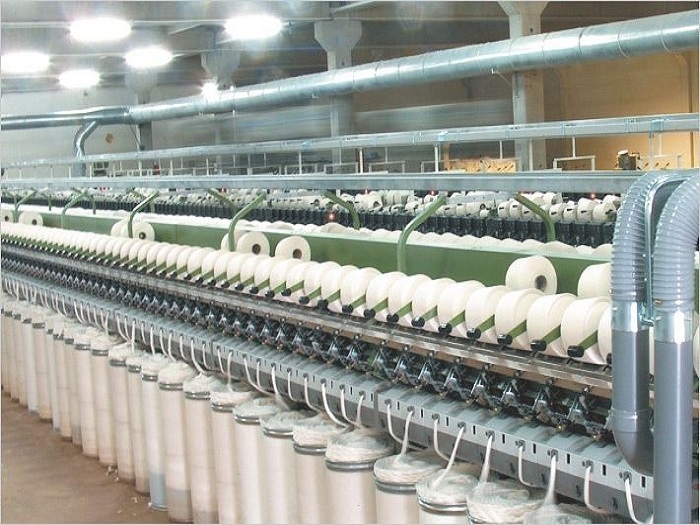Maharashtra lowers power tariff for coop spinning mills by Rs 3 per unit

Mumbai, Feb 8: The Maharashtra Cabinet on Tuesday decided to reduce the power tariff by Rs 3 per unit for cooperative spinning mills. This will provide a boost to the textile industry in the state. For other projects like power looms, processing, garment, hosiery etc. the power tariff has been lowered by Rs 2 by the Chief Minister Devendra Fadanvis.
To encourage the ambitious ‘Make in Maharashtra’ initiative the government has drafted a new textile policy for the progress and benefit of textile industry besides farmers, women and weaker sections of the society. This policy envisages besides reduction in power tariff, special encouragement for the use of non-conventional energy, official sources said.
According to the sources the spinning mills will now get power supply at a rate reduced by Rs 3 per unit. But this will not be available for power supply from open access. A provision of Rs 150 crore annually is made for three years. In this period of three years the textile projects are expected to develop their own non-conventional energy sources like solar or wind to fulfil their future needs. The limit of 1 MW net meter is removed from this scheme. The concession will be reviewed annually and if found to exceed Rs 150 crore the concession may be further reduced.
Except 107 HP high pressure cooperative spinning mills, other textile projects will get power supply at a rate reduced by Rs 2 per unit. The concession applied to power loom will now be applicable to garment, knitting and hosiery industries also. The cross subsidy applied on open access will now be removed for textile components. The projects using non-conventional energy will not be charged other surcharges, the Cabinet has decided.
The textile policy 2018-2023 will be playing a pivotal role in employment generation besides processing on cotton, silk, wool and other conventional and man-made fibre to ready-made clothes (Fibber to Fashion). This policy is expected to generate 10 lakh jobs in next five years and for this the government will be implementing various schemes at an estimated expenditure of Rs 4649 crore.
Extensive skill development program will be implemented for generating 10 lakh jobs in cotton, silk, wool, and non-conventional fibre. The government is contemplating on setting up a State Textile University to teach subjects related and useful in textile industry. Similarly, other objectives of this new policy include: to double the farmers’ income by developing conventional and non-conventional sources of fibre, production of non-conventional, its use and encourage this sector by giving 10 percent grant to make clothes, opening special cell in textile department for non-conventional fibre production and its use, power supply at reasonable rates, etc.
Financial strengthening will be done through textile development funds, and efforts will be made for raising basic infrastructure like silk cocoon markets, textile cluster, Garment Park and chalky rearing centre. Silk tourism circles will be developed at Gadchiroli, Chandrapur and Bhandara on the lines of Silk circles at Ajanta and Ellora.
Strengthening of textile department and simplification of administrative work will be done by converting the directorate into commissionerate. To encourage green energy, use of organic yarn, natural colours and implementation of ZLD system in processing will be given special grants for environment-friendly approach.
Cooperative spinning mills in cotton producing areas will be given encouragement and the share capital scheme will be implemented in these cotton producing districts under this policy. This also includes spinning mills using less than 50 percent cotton produced in concerned taluka. The spinning mills will be given 30 percent government share capital and the cooperatives are expected to raise 10 percent capital.
Under the ‘Make in Maharashtra’ policy, 5 per cent special share capital to projects with investment more than Rs 500 crore and additional 5 percent to first such project in a taluka will be given as incentive. Government officers can be appointed on deputation to the post of Managing Director of spinning mills.
Privatization is allowed in case of spinning mills and power looms running in loss on condition that they would repay the government dues and interest in one instalment. This opportunity will be available for a definite period only.